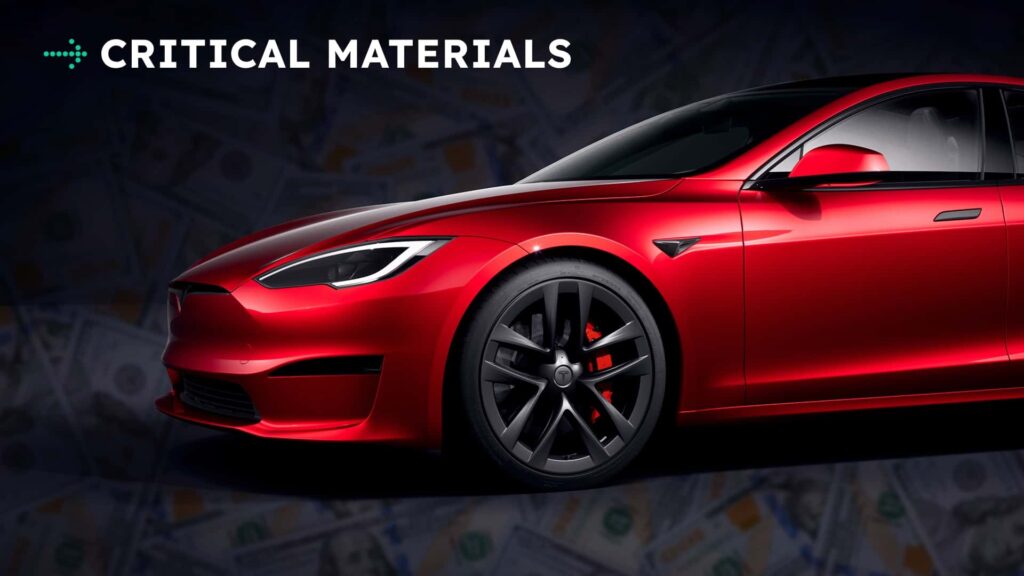This could potentially mislead investors and regulators, which is a big no-no in the financial world. And for a company like Tesla, whose stock price has taken a hit recently, any hint of financial irregularities could spell disaster.
It’s worth noting that Tesla has faced scrutiny over its accounting practices in the past. In 2023, the Securities and Exchange Commission (SEC) launched an investigation into the company’s revenue recognition practices. The investigation ultimately resulted in Tesla agreeing to pay a $40 million fine and appointing two new independent directors to its board.
Of course, it’s important to remember that these are just allegations at this point. Tesla has not yet responded to the report, and it’s possible that there’s a perfectly reasonable explanation for the missing $1.4 billion. But given the company’s history and the current state of its finances, it’s definitely a situation worth keeping an eye on.
For investors, this news may be cause for concern. Tesla’s stock price has been on a downward trend in recent months, and any further negative developments could exacerbate the situation. It’s always important to do your own research and consult with a financial advisor before making any investment decisions, especially in a volatile market like the one we’re currently experiencing.
As for Tesla, the company has a lot of work to do to regain the trust of investors and regulators. Transparency and accountability are key in the financial world, and any hint of impropriety could have serious consequences. Only time will tell how this situation plays out, but one thing’s for sure—Tesla money may never be the same again. But for now, Hyundai is standing strong and showing that it’s not phased by Trump’s EV plans. With a solid localization strategy in place and a focus on global markets, Hyundai is positioning itself as a leader in the electric vehicle industry, no matter what challenges come its way.
Hyundai may be feeling the pressure from the competition, but one automaker that isn’t scared is Rivian. In a surprising move, Rivian has stepped in to offer a lifeline to Fisker Ocean owners who have been left in the lurch following the startup’s bankruptcy.
Fisker Ocean owners have been through a tumultuous journey, with the company facing allegations of mismanagement and leaving owners feeling abandoned. Many owners were still facing hefty car notes of $50,000 or more, leading them to seek relief through legal channels.
Last week, Rivian and Chase, the bank that backed Fisker’s financing department, came together to offer Fisker Ocean owners a structured buyback program. Under this agreement, Rivian will buy back running and driving Fisker Oceans or allow for a trade-in towards a Rivian-branded vehicle. In cases where the Fisker Ocean is no longer operational, Chase will step in to purchase it.
While the buyback offers may not fully cover the original purchase price, owners are receiving fixed amounts based on the value of the vehicle minus its actual usage. Some owners have reported offers of around $36,000 for Fisker Ocean One models and $54,000 for Fisker Ocean Extreme models. Despite some confusion around the valuation process, these amounts are still higher than the current market value of the vehicles.
Reactions to the buyback offers have been mixed among Fisker Ocean owners. Some feel that the offers are too low, given the lack of support and potential safety issues with their vehicles. Others see it as a pragmatic solution in a challenging situation. There are also those who believe that collective bargaining and arbitration could lead to higher settlements.
Regardless of the differing opinions, many owners who opt to take advantage of the buyback offer will still be left with significant negative equity on their car loans. The involvement of Rivian in this deal has raised some eyebrows, with questions about the motives behind the partnership. Whether it’s altruism or a strategic move to sell more cars, Fisker owners may approach this offer with caution, given their past experiences with a startup brand.
While Hyundai may be feeling the heat from its competitors, Rivian’s bold move to assist Fisker Ocean owners shows that the automotive industry is full of surprises. Only time will tell how this partnership plays out and what it means for the future of electric vehicles and the companies that produce them.
It’s understandable that Fisker owners may be hesitant to trust another startup automaker after their previous experience. The Fisker brand has had its fair share of ups and downs, with the original Fisker Automotive going bankrupt in 2013. Henrik Fisker’s latest venture, Fisker Inc., has seen some success with the Fisker Ocean electric SUV, but some may still be wary.
With the rise of electric vehicles and the influx of new EV startups in the market, it can be overwhelming to decide which brand to trust. Rivian, for example, has gained a lot of attention and funding for its electric trucks and SUVs. However, it’s essential to consider the track record of these startups and whether they have the financial backing and expertise to succeed.
While it’s tempting to jump on the latest trend and support innovative new companies, it’s crucial to do your research and consider all factors before purchasing a vehicle from a startup. Look at reviews, talk to current owners, and evaluate the company’s long-term viability before making a decision.
Ultimately, the decision to buy an EV from a startup after Fisker comes down to personal preference and risk tolerance. Some may be willing to take a chance on a new brand with exciting technology, while others may prefer to stick with more established automakers with a proven track record.
Regardless of your choice, it’s encouraging to see more options in the EV market and the push towards sustainable transportation. As technology continues to evolve, we can expect to see even more innovative startups entering the market, offering consumers a wider range of choices for electric vehicles.

